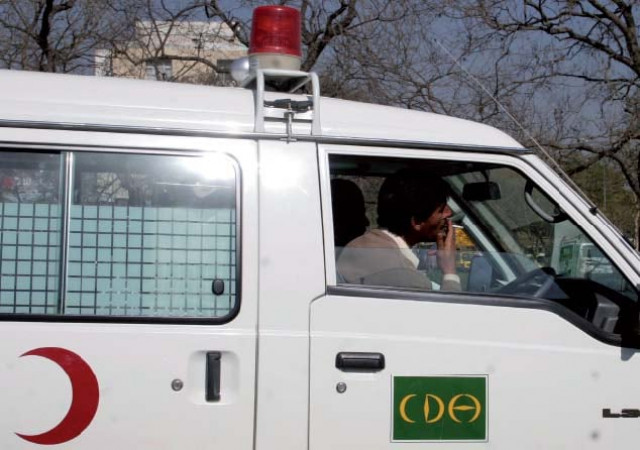Regulatory body: Healthcare commission ready to take on quackery
Formed in 2014, commission to begin work once CEO is appointed, office provided

PHOTO: EXPRESS
The nine honorary members (commissioners) of the advisory body have elected Dr Tipu Sultan as chairperson of the commission. A few meetings of the commission have already taken place but they are still seeking the establishment of an office for the commission and appointment of a chief executive officer.
"We have decided to fast track [the process] but there are pre-requisites such as the establishment of our office, appointment of a CEO and seed money for the running of the office from the government that are required," shared Dr Sultan. Sub-committees have also been created, which will work on the financial and human resource aspects of the commission, he said. The running of the office would be the responsibility of the CEO; however he will get directions and advice from the commission and will also report to the commission.
The commission is an autonomous and independent body which will generate its own resources after it starts registering, monitoring and regulating healthcare facilities in the entire province at a minimum cost.

The main agenda of the commission is to deal with quackery and simultaneously promote the rights of patients, doctors and health workers, explained Dr Sultan.
All healthcare facilities in the province will be registered and accredited with the commission, which is in the common interest of all healthcare providers, said the chairperson. "It will be a patient friendly and healthcare friendly organisation," he promised.
According to him, there is no regulating body of Sindh's medical facilities and healthcare service providers. "It's currently law of the jungle, where quacks are treating patients and counterfeit medicines are being sold to the people," Dr Sultan lamented.
He said that it would take time to clean this mess, created over a period of 60 to 70 years. "This is good news for everybody and a win-win situation for everyone," he said while referring to the formation of the healthcare commission.
He assured that the commission would start functioning in a few months and the main beneficiaries of the commission would be the patients.
We will give guidelines to different public and private hospitals, laboratories and medical stores, said member of the commission Dr Iqbal Memon. We will also have inspection teams, stakeholders and civil society members onboard, he assured.
"The commission is going to work as a watchdog to register, regulate and monitor public and private hospitals," said Dr Memon.
While explaining the working of the commission, he said that it would never be dependent on the government and would generate its own resources.
Heavy fines can be imposed by the commission on hospitals and false complainants, he said. The commission member added that security of healthcare workers on duty should be the responsibility of the organisation availing their services.
CEO of Indus Hospital Dr Abdul Bari told The Express Tribune that the commission would definitely impact all the stakeholders in the healthcare sector in a positive way if it remains autonomous. "Steps taken with good intentions will bring changes in healthcare structure and would mainly improve patient care," he said.
"Quackery is fraudulent act and needs to be monitored," warned executive director at Jinnah Postgraduate Medical Centre Dr Seemin Jamali. She added that the formation of a healthcare commission is a very good and welcome step, as the accountability of every individual must be done within this commission, as it would also provide protection to healthcare workers, especially in public sector hospitals.
Published in The Express Tribune, January 25th, 2017.


















COMMENTS
Comments are moderated and generally will be posted if they are on-topic and not abusive.
For more information, please see our Comments FAQ